Hugh Cornwell - Interview
by Denzil Watson
published: 23 / 10 / 2015
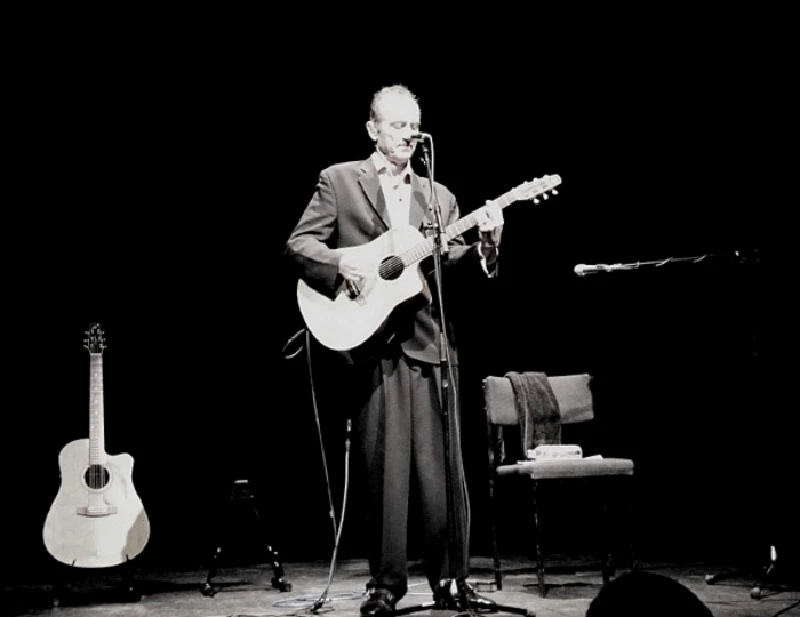
intro
Ex-Strangler and now established solo artist Hugh Cornwell is about to release a solo 'best of' album, 'The Fall and Rise of', and will be playing an acoustic tour in November around the lesser-known parts of the UK. Denzil Watson speaks to him about the album, tour and his former band
He's fronted bad boys of the punk rock scene, The Stranglers, done time at Her Majesty's Pleasure, written a number of books (both autobiographical and fictional), dated Hazel O'Connor and carved out a solo career. Few English musicians can boast such a varied, colourful and successful career as Tufnell Park-born Hugh Cornwell. Still going strong on multiple fronts, 2015 has been and is continuing to be a busy year for him. With a solo career retrospective due in October and a UK acoustic tour in November, Pennyblackusic caught up with Hugh to talk about the the forthcoming album 'The Fall and Rise of Hugh Cornwell', the joys of songwriting and playing live, and that ex-band of his. PB: HC…how the devil are you? HC: I'm OK. I'm good. Everything's good at the moment. It's pretty busy. PB: What made you decide that it was time to have a look back through your solo back-catalogue? Was it the fact it’s been a quarter of a century since you left The Stranglers? HC: That might have had something to do with it but it wasn't my decision. A record company was crazy enough to want to do it and got in touch with me. In fact it's a resurrected label [Invisible Hands Music] that released 'Hooverdam' eight years ago. It's the same team and it was their idea, and they picked the tracks. So I'm going to answer that question too and say that I had nothing to do with the [song] choices. They had a very good idea of what they wanted to put on and the tracks that they were really, really keen on. So it's not rocket science. It would be stupid to stamp all over their enthusiasm. They're all my songs and I'm proud of them, so they put together all the tracks they picked and it sounds good, so that's it. PB: Out of interest, did you play the game where you picked your twelve choices and then compared them with their choices? HC: Yeah, and some of them overlapped but it wasn't all my choices, but that's fair enough. PB: I've listened to the promo and it all hangs together really well. Two tracks that really stand out are the two tracks taken from 'Hi Fi': 'Leave Me Alone' and 'Lay Back on Me Pal'. HC: Oh, great. Well that's interesting, because that's one of the lesser-known of my albums throughout my solo career. PB: And I have to say, the latter one, 'Lay Back on Me Pal' is a bit of a classic. HC: Well, my trio that I go out with, we play that live. We haven't done it for a while but we are going to be resurrecting it now. We do it really heavy but it sounds great and it's a good song. PB: I also really like the 'Long Dead Train' from 'Guilty'. It’s the track that most reminds me of The Stranglers, circa 'Raven'. I think it must be the keyboards. HC: Yeah, it's got a lot of keyboards on it, so that makes a bit of difference. PB: Your song, 'Please Don't Put Me on a Slow Boat to Trowbridge', always brings a wry smile. And your accompanying comment that Trowbridge is "One of the worst places in the world to visit because of its disorientating' one-way systems". It upset the town's civic leaders, didn't it? HC: Well it's also a bit of a nod to great songwriters like Jimmy Webb. Jimmy Webb's calling card was that he always used to write a lot of songs with placenames in the titles. But the major English ones, except for London, don't particularly lend themselves to the romance of song titles, like Tulsa and Phoenix. So 'Trowbridge' was a nod in Jimmy's direction and his genius. PB: So my next question follows on from that. There's a strong theme of travel flecked through both your Stranglers and solo songs, isn't there? HC: Yeah, well it's an essential part of my life and of most musicians. Travel comes with the job and you either get to enjoy it or hate it and I've grown to love it. I really enjoy travelling. PB: Can you tell us about the new song 'Live It and Breathe It'. It's previously appeared in live form on your 'People, Places, and Pieces' album, hasn't it? HC: The label obviously wanted something brand new, and while I could have given them something from the next album, which was what I was suggesting, the idea popped up of this song, and it has always been popular when I've played it live. All the fan sites have been asking when is it going to go on a record. It was going to go on 'Hi-Fi' and we recorded it for the 'Hi-Fi' sessions but it didn't really hang together well and it wasn't a very good version, so it was left off. It never made it on to that record so it's been around since then. So it makes sense to do it and to nail it in the studio, which is what we did. PB: One other thing that comes through listening to the tracks is that your songs from the earlier albums ('Hi-Fi', 'Wolf', and 'Guilty') are much more ‘produced’ than the tracks from your more recent albums, which, for me, have a much rawer feel and simpler instrumentation on them. HC: Yeah, on the earlier records the producers I worked with were very much into creating paintings with layers of stuff. Laurie Latham creates landscapes of sound. It would be very hard to reconstruct. In order to play everything that Laurie Latham put on the record you would have to have about ten people up on stage to play it accurately. But I never went for that and trying to play live versions of the record. As time has gone on it has just made more sense to strip it down. The more simple something is the easier it is to get it right, but it's more of a challenge to write a simple song than a complicated song, I think. You would think it would be easier to write a simple song and more difficult to write a complicated song but it's not. It's the other way round. It's always the simple songs that you remember. That's not suggesting dumbing down. A very simple song is very, very clever. It's the simple ones that are the classics. And we all want to write classic songs, so that's what I try and do now. As far as recording goes, I got familiar with a classical composer called [Manuel] De Falla. He's quite famous, from a hundred years or so ago, turn of the century. He was a Spanish composer who spent most of his time living in France. He came from Cadiz in Spain and he became very famous for his ability to take a small orchestra of, say, thirty pieces and make it sound like an orchestra of, say, a hundred pieces. I was very impressed with what he did. So it's an interesting task with just bass, drums and guitar to take it and make it into something that sounds bigger than you imagine. It's a trick, an audible illusion if you like. 'Totem and Taboo' was the very point of me discovering how to do that. And I'm going to carry on with it as I love it. PB: I really liked the last album. You recorded it with Steve Albini, didn't you? In some ways you have come full circle from Laurie Latham to Steve Albini who says he isn't a producer, but a recording engineer. HC: With Steve you just try to explain to him what you want it to sound like and he'll try and get the sound, which means you are going to have a very good idea of what you are going to end up with. So you can say to him 'I don't like the way that is, I want it like that', and he'll try and do it. So it was a very good experience working with him. PB: Is there any reason why there aren't any tracks from 'Totem and Taboo' on the retrospective album? HC: One of the reasons was that it has just come out and people have just bought it, so it's a bit of a psychological thing really. The record label was also quite adamant that they wanted twelve tracks, two from each of the albums, so it would take it over the limit. The record company are really into vinyl and they are aware of the practicalities of their own records. You don't want to go over twelve or thirteen songs in terms of the minutes that are on each side. It sacrifices quality of sound so that's a consideration as well. So it makes sense to leave off the latest album from this record. PB: Let's talk about songwriting for a moment. One thing that must have been a big change for you was when you left The Stranglers, where you had a way of writing as a band, to writing alone. Do you prefer writing alone to the way you wrote with The Stranglers? HC: To set you straight there it wasn't really the writing that was affected, it was the arranging. A lot of The Stranglers songs were written totally by myself or totally by John (JJ Burnel). Or, about fifty percent of the time, me and John writing together. And then the actual way the song would end up sounding was down to the band arrangement. We all took part very heavily in that. So it wasn't really the writing process that changed for me. For the last few [Stranglers] records I was writing a lot of the songs by myself. That was because we were finding less and less time to get together, John and I. So we would write separately. So it's the arranging side [that's changed]. PB: How about the quality control side of things? HC: Well for a lot of the songs for the later Stranglers albums I was writing alone, so I had quality control before I even suggested or presented them. I presented the ones I thought were the best. So quality control wasn't really something [of an issue]. The point that I really want to bring out, that I've only just realised talking it through to you, is that because of that lack of arrangement skills when I was alone, the producers put more stuff on the records. The arrangements were less fixed in my head when I went into the studio. Whereas now, with say 'Hooverdam' or 'Totem', or the next one which is going to be the same, I really nailed the arrangements. So it's much simpler going into the studio because the idea of how the song is going to sound is much clearer in my mind before the recording starts. What I do now is full demos at home on a two-inch machine. Twenty-four tracks, but I don't always use all the tracks. Maybe five or six. I like to have one guitar part going all the way through the song. I keep it basic so it means when I come to play it live it's a doddle because there is very little that I have to change. PB: And that takes me nicely on to my next question. You’re taking the album on the road in November. Do you still enjoy playing live? HC: In November it's an acoustic tour, which is completely different to playing with a band. Yeah, I enjoy it. I enjoy going back to places where there are more people. That's a great situation. Places like Bremen for example. Every time I go back there there's a bigger audience. I also like going to places I've never been before because I'm curious. PB: You’re going to a number of places that are off the beaten track, like Selby, Colne and Leek. Is that a conscious decision by you? HC: Ah, Leek. Yes, I had to look it up myself to see where it was [Staffordshire]. I think the biggest gig I'm doing on the acoustic tour is the Union Chapel [London], which I more or less pack out these days. Most are modest, sober sizes. I like the 500-capacity ones as you get an intimate relationship with the audience. With acoustic gigs you've got to be careful of that, otherwise it becomes depersonalised. Then it's not such a nice feeling. PB: You are also playing some very interesting venues too. HC: Well, there's a couple of churches as well. Weston-super-Mare. I couldn't find a suitable venue in Bristol or Bath that wanted me so there's the church there. They [St Paul's] were clamouring for me to go there so I'm going there. PB: Will it be just you and your acoustic or will you have a band with you? HC: Just me, my acoustic and a microphone. PB: On the acoustic tour you are going to be mixing up your solo tracks with Stranglers tracks. Do you still enjoy playing The Stranglers songs, and how do you go about choosing which ones to play? HC: About two years ago I went out doing acoustic shows and I hit upon the idea of doing something chronological. That immediately cuts down your choices in a sense as you are following a chronological order and you are also telling a story. A history of music that I've been involved with over the years. So I've taken that and I've taken it another step down the line. It also allows me to remember stories and things from various points while the records were coming out. I'll remember something humorous or interesting about the song or the record it comes from. So I'm picking a song off each Stranglers album and then off each of the solo albums. This is quite useful because it means I can visit at least half of the songs on 'The Fall and Rise of' album. At least half of this album I'll be able to play acoustically. PB: Do you still look back on your seventeen years with the band fondly? HC: Yeah. It went very quickly. I learnt a lot of skills and I wouldn't be where I am now if it wasn't for that. So God bless it. PB: The Stranglers' material has stood the test of time well, hasn’t it? Why do you think that is? HC: Yeah, it's an accolade to the songs we created. PB: And I’m struggling to think of other bands that can boast as brilliant a first four albums as The Stranglers produced. HC: Well, I don't know. There are so many bands. There must be one or two. But who knows all the bands? PB: Do you have a favourite Stranglers album? HC: Well, I know from the fans that 'Black and White' is their favourite, which is a surprise to me. For me I love the 'Meninblack' album because it was so avant-garde and experimental. We tried a lot of things on it - lutes and things like that. And recording with condenser microphones, tape players and things like this. I just loved the whole creative buzz when we were making it. But it's very hard to play acoustically. There's only one or two that could really work. You can just about get by with one or two tracks from every Stranglers album that works. PB: Have you, at any time, had a moment of regret about leaving the band? HC: No, none at all. I mean, regret is a terrible emotion and no-one should ever feel regret about anything they have done. Unless it's hurt people, you know. It's an over-subscribed emotion and what it does, I think, is that it obviates responsibility from people's choices. When you make changes in life you have to be courageous enough to believe in them and take responsibility for them. And regret is just a doorway, or a flap, so you can escape from responsibility. Which is wrong, I think. PB: It was quite a courageous decision to leave The Stranglers and go solo and leave this 'gang' you'd been in for many years. HC: Exactly. And everybody said I was mad. But you have to be mad to do some things (laughs). PB: At the time were you surprised they decided to carry on as The Stranglers without you? HC: Well no-one suggested I take a break, someone pointed out to me years later, which I thought was a good point. So we were probably fed up to the back teeth with each other by then. Otherwise somebody would have suggested it. I was surprised they expanded the line-up to include a guy with blonde hair who wasn't sure who he was with, because the singer that took over from me [Paul Roberts] didn't play an instrument on-stage and was in a very difficult position. He had to pretend to be me when singing the old songs and then he had a few fixations with other artists as well. Very complicated. So I wasn't surprised that didn't work. But they seem to have found a format that works for them now, back to a four-piece with a guitarist. PB: Have you listened to anything the band have done since you left them? HC: Yeah, but it doesn't really interest me. I don't hear much energy in there, or creativity. It just confirms why I left really. But the old catalogue is a fabulous catalogue. I've got nothing but great things to say about our old catalogue. PB: Have you spoken to them since you left? HC: I don't have any contact with them. What you have got to remember about The Stranglers is that we weren't mates before we were making music. A lot of bands, they come from real good friends who try to make a band together. But they are friends before they start making music. With us, we came together to make music and we became friends because it made sense to and we got on reasonably well. But actually our interests and core personalities were very different. I don't imagine I would have ever met someone like Dave Greenfield or Jet Black if I wasn't in The Stranglers. And I'd had just about enough of Burnel to last me a lifetime. So there wasn't much reason to carry on a connection with them really. PB: I interviewed Jean-Jacques Burnel earlier in the year and he said he regretted that you weren’t still in touch as friends. HC: Well, it's just sometimes we got on very well when we were in the band, like two brothers. And I'd just had enough of it. Of his behaviour and everything. He was perfectly capable of being a lovely guy, but I'd just had enough. Sometimes you have just had enough of people and you have to say "Well, there's a lot of other people out there who I want to meet.' PB: He said at one point he plucked up the courage to phone you up and ask you to go for a drink and you just gave him the brush-off. HC: Yeah, well you know, what's done is done. So there you go. PB: It's a good time to be a Stranglers fan, as you've got the band continuing to tour and yourself touring playing Stranglers songs. HC: Yeah, it's just a shame that the line-up is changing so much these days. It's got less and less in common with the original thing as Jet Black is hardly playing now, which is a shame. That really is a shame. When will it end? What if another member doesn't want to go on the road or cannot for health reasons? What will happen then? Maybe it will end up with the band on the road with none of the original members present. PB: Which I guess in the end is the beauty of being a solo artist, isn't it? HC: Exactly. If I'm sick there won't be a gig (laughs). I like that because it means I've got a trademark. PB: It's a funny profession like that, as a lot of people will retire when they get to say 60 or 65, but those rules don't really apply to musicians do they? HC: Exactly. You don't really retire do you? You've got it. PB: Anything else exciting in the pipeline, aside from the acoustic tour and the albums? HC: Yes, I've done an album with John Cooper Clarke. Very few people know that he can sing. He's got a great baritone voice. What we've done is take a collection of very old classic songs. It's like a tribute to songwriting, and he's done a very good job on them. Songs like 'Jezebel' by Frankie Laine and 'Love Potion No.9' [Leiber and Stoller], 'MacArthur Park' [Jimmy Webb]. What fabulous songs. 'Donny' by Ritchie Valens. These are beautiful songs. He's done a great job. I've done all the backing tracks and produced it. It's just being finished off mixing-wise and it'll be out before Christmas. We could have John Cooper Clarke at the top of the charts. John Cooper Charts! It's going to be a shock because you've never heard him sing. But he can sing! Great voice. PB: Hugh Cornwell, thank you very much for your time. Photographs: Denzil Watson
Band Links:-
http://www.hughcornwell.comhttps://www.facebook.com/hughcornwellofficial
https://twitter.com/HughCornwell
Have a Listen:-
Picture Gallery:-
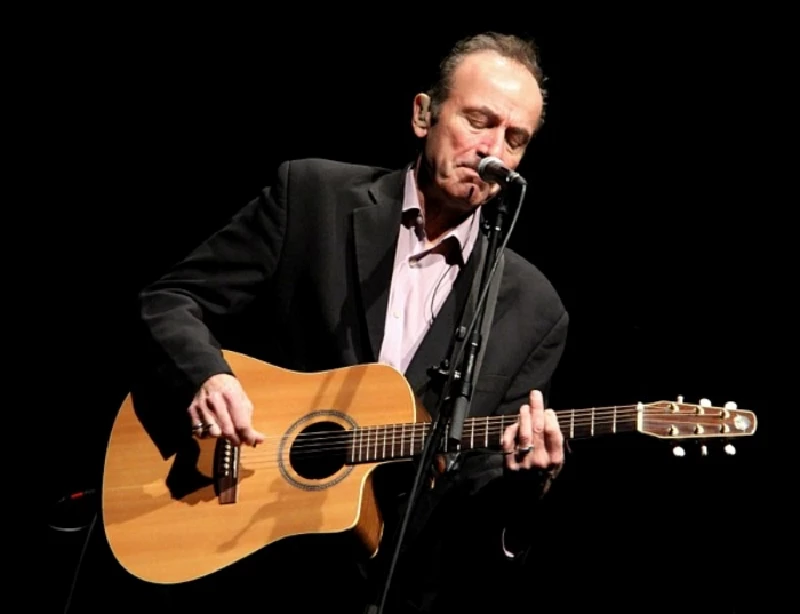
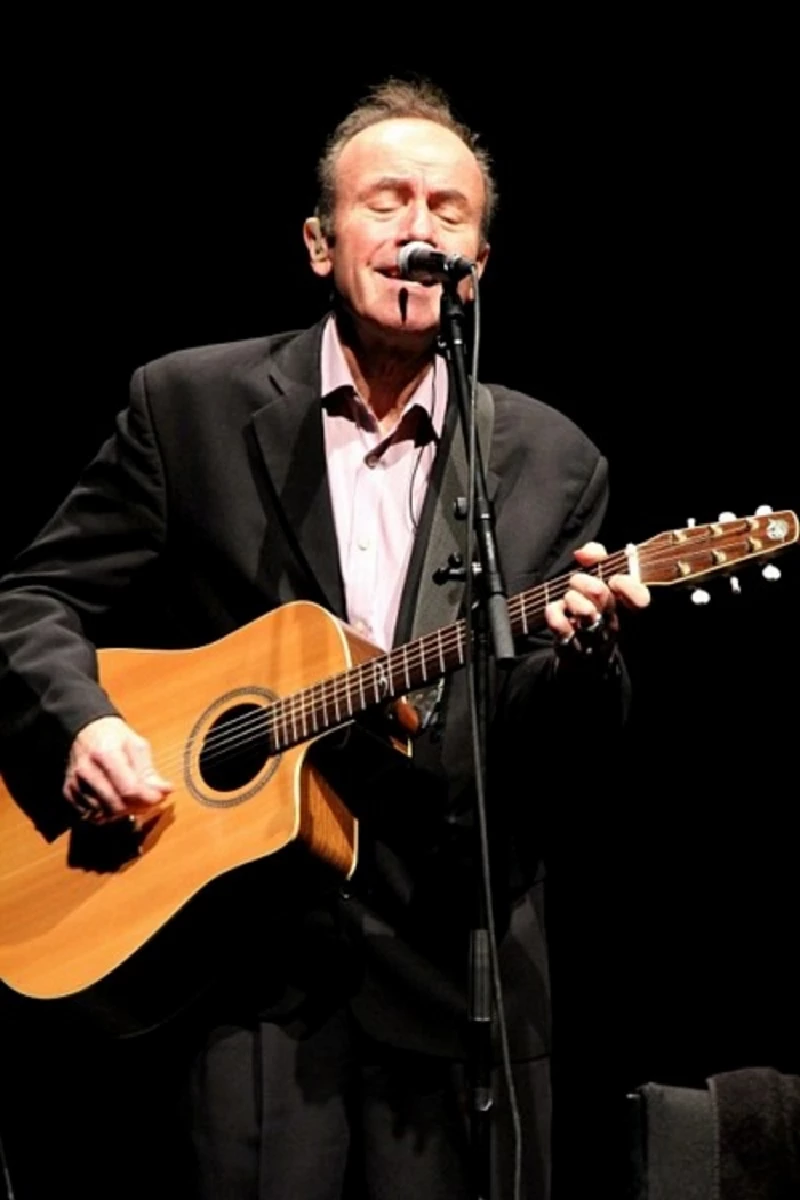
interviews |
|
Interview (2023) |
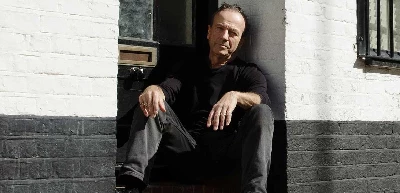
|
| Ex-Stranglers singer/guitarist Hugh Cornwell chats to Eoghan Lyng about his recent ‘Moments Of Madness’ LP and upcoming UK and Ireland shows. |
| Interview (2022) |
| Interview (2009) |
| Interview (2008) |
| Interview (2006) |
live reviews |
|
O2 Academy, Sheffield, 7/5/2023 |
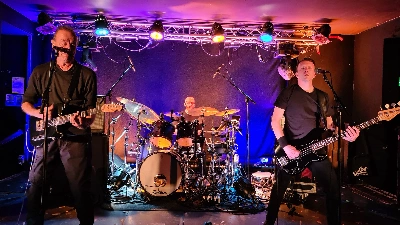
|
| On the road to support his recent ‘Moments Of Madness’ LP the former Stranglers frontman, long since turned solo artist Hugh Cornwell shows no sign of slowing down. |
| Academy 3, Manchester, 27/11/2009 |
photography |
|
Photoscapes (2022) |
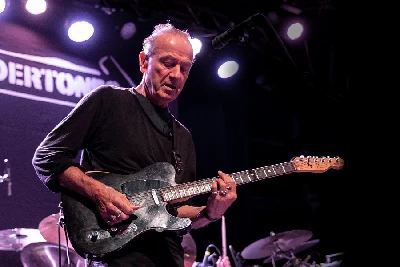
|
| Andrew Twambley takes photographs of former Stranglers frontman Hugh Cornwell at a gig at the Manchester Academy. |
soundcloud
most viewed articles
current edition
John McKay - InterviewCathode Ray - Interview
Robert Forster - Interview
When Rivers Meet - Waterfront, Norwich, 29/5/2025
Spear Of Destiny - Interview
Fiona Hutchings - Interview
Carl Ewens - David Bowie 1964 to 1982 On Track: Every Album, Every Song
Chris Wade - Interview
Shrag - Huw Stephens Session 08.12.10 and Marc Riley Session 21.03.12
Brian Wilson - Ten Songs That Made Me Love...
previous editions
Heavenly - P.U.N.K. Girl EPBoomtown Rats - Ten Songs That Made Me Love....
Manic Street Preachers - (Gig of a Lifetime) Millennium Stadium, Cardiff, December 1999
Allan Clarke - Interview
Oasis - Oasis, Earl's Court, London, 1995
Barrie Barlow - Interview
Beautiful South - Ten Songs That Made Me Love...
Pixies - Ten Songs That Made Me Love...
Chuck Prophet - Ten Songs That Made Me Love...
Dwina Gibb - Interview
most viewed reviews
current edition
Peter Doolan - I Am a Tree Rooted to the Spot and a Snake Moves Around Me,in a CircleVinny Peculiar - Things Too Long Left Unsaid
Garbage - Let All That We Imagine Be The Light
Vultures - Liz Kershaw Session 16.06.88
John McKay - Sixes and #Sevens
Little Simz - Lotus
HAIM - I Quit
Pulp - More
Lapsley - I'm a Hurricane, I'm a Woman In Love
Billy Nomates - Metalhorse
Pennyblackmusic Regular Contributors
Adrian Janes
Amanda J. Window
Andrew Twambley
Anthony Dhanendran
Benjamin Howarth
Cila Warncke
Daniel Cressey
Darren Aston
Dastardly
Dave Goodwin
Denzil Watson
Dominic B. Simpson
Eoghan Lyng
Fiona Hutchings
Harry Sherriff
Helen Tipping
Jamie Rowland
John Clarkson
Julie Cruickshank
Kimberly Bright
Lisa Torem
Maarten Schiethart